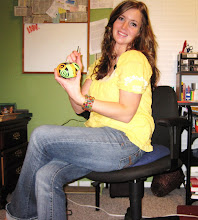Week 7 Richard Miller, Networked Student, Toward a Future of Whatever by Michael Wesch
Richard Miller: "This is How we Dream Parts 1 & 2
Part 1
Ahh, good ole books. Riches of the world, as he refers to personal selections of virtual books. Will we always have access to public libraries? Will they always be here for us to use for knowledge deposits? Today everyone is advocating virtual information as a primary source for research and if you aren't embracing the endless possibilities Google search results, you're being enlightened and persuaded to. Dr. Miller mentioned his clear understanding of the problem of ‘accessibility and difficulty’ of making an educational system like the one he described generally available.
Part 2
Whenever a discussion of such relevance is provoked by classmates/friends, etc., I tend to surface the obvious barrier between learners of today’s society and such an educational system. The barrier between the two is limited and available resources. And of course the difficulty in transitioning information as a whole from shelves to desktops. Don’t misinterpret my statement as meaning anything more than an expression of concern for the low-income families that will be sending their children to my classroom. Sure, I’d love to buy each and everyone of them a computer after I file taxes but is this realistically attainable? Absolutely not. Is Dr. Miller's dream attainable sooner than we anticipate? I will agree in that it already has begun. Teachers like myself are not yet inspired to create this kind of pedagogy. I just taught myself to Skype two weeks ago. Although I am thrilled about using fun and creative forms of technology such as Google Earth in my classroom, I am not nieave enough to believe this system will be utilized in every school. In response to the questions posted in this week's blog assignment, I am going to be ready to write Multimedia.. and so will my students.
The Networked Student by Wendy Drexler
Before commenting on whether or not I am prepared to be a teacher of a networked student, I will tell you that I feel a little more organized and confident in creating a PLN. The rapid dialogue was probably frustrating for some to keep up with, but thank goodness for pause and rewind! I made some notes on Microsoft Word while I watched and listened to the video a second time. I noted every step (in order) the paper cut-out student took to compose his 'virtual textbook.' We all learn differently and for whatever reason, this particular video helped me break down the steps I need to take to begin my "PLN journey".
To be frank, I am not fully prepared to be a teacher of a networked student; but if I'm not learning from my students... then I'm not teaching my students. So in a sense, I consider myself to be a pencil that needs sharpening.
Michael Wesch: Toward a New Future of Whatever
Every generation then, now, and to come will exhibit narcissistic tendencies and who is surprised? For a long time now we have questioned the ability of man to commit an unselfish act. This is almost as debatable as conflicting religious beliefs. What is unselfish about gratitude? I will stop there about that so I won't get an "irrelevant to assignment" grade for this comment. Speaking of irrelevance, the comment he made: "99% of statistics are irrelevant to you" stuck out to me as I watched the video. Whether you are a shy, quiet type or a loud mouthed extrovert, at some point in your life you felt good when you received attention. I am in agreeance with Dr.Wesch in that no matter how many views/comments your own personal homemade video has posted underneath it, the creator gets a sense of confidence and approval from society as a whole. Because you don't have to audition with the fear of rejection to post a video on YouTube. You just need the desire to express or share something... and sometimes all you need is to know yourself a little better.
Whenever a discussion of such relevance is provoked by classmates/friends, etc., I tend to surface the obvious barrier between learners of today’s society and such an educational system. The barrier between the two is limited and available resources. And of course the difficulty in transitioning information as a whole from shelves to desktops. Don’t misinterpret my statement as meaning anything more than an expression of concern for the low-income families that will be sending their children to my classroom. Sure, I’d love to buy each and everyone of them a computer after I file taxes but is this realistically attainable? Absolutely not. Is Dr. Miller's dream attainable sooner than we anticipate? I will agree in that it already has begun. Teachers like myself are not yet inspired to create this kind of pedagogy. I just taught myself to Skype two weeks ago. Although I am thrilled about using fun and creative forms of technology such as Google Earth in my classroom, I am not nieave enough to believe this system will be utilized in every school. In response to the questions posted in this week's blog assignment, I am going to be ready to write Multimedia.. and so will my students.
The Networked Student by Wendy Drexler
Before commenting on whether or not I am prepared to be a teacher of a networked student, I will tell you that I feel a little more organized and confident in creating a PLN. The rapid dialogue was probably frustrating for some to keep up with, but thank goodness for pause and rewind! I made some notes on Microsoft Word while I watched and listened to the video a second time. I noted every step (in order) the paper cut-out student took to compose his 'virtual textbook.' We all learn differently and for whatever reason, this particular video helped me break down the steps I need to take to begin my "PLN journey".
To be frank, I am not fully prepared to be a teacher of a networked student; but if I'm not learning from my students... then I'm not teaching my students. So in a sense, I consider myself to be a pencil that needs sharpening.
Michael Wesch: Toward a New Future of Whatever
Every generation then, now, and to come will exhibit narcissistic tendencies and who is surprised? For a long time now we have questioned the ability of man to commit an unselfish act. This is almost as debatable as conflicting religious beliefs. What is unselfish about gratitude? I will stop there about that so I won't get an "irrelevant to assignment" grade for this comment. Speaking of irrelevance, the comment he made: "99% of statistics are irrelevant to you" stuck out to me as I watched the video. Whether you are a shy, quiet type or a loud mouthed extrovert, at some point in your life you felt good when you received attention. I am in agreeance with Dr.Wesch in that no matter how many views/comments your own personal homemade video has posted underneath it, the creator gets a sense of confidence and approval from society as a whole. Because you don't have to audition with the fear of rejection to post a video on YouTube. You just need the desire to express or share something... and sometimes all you need is to know yourself a little better.




Your concern for the lower income families is absolutely right. I hadn't thought of it like that. I feel that Dr. Miller is right, but it's also safe to say that this method is not for everyone. Good Job!!!
ReplyDeleteIf we were to eliminate the military costs for one month in Iraq, how many computers could we buy for students? The Government Accounting Office estimates that the monthly cost of the Iraq war is $9 billion. Lets say that our device (iMac of course) costs $1,000 per unit (we could actually cut that in half with such a massive purchase). There are approximately 50,000,000 K-12 students in the United states. So it would take less than 6 moths of the war in Iraq to give every K-12 kid an excellent laptop. You write "Sure, I’d love to buy each and everyone of them a computer after I file taxes but is this realistically attainable? Absolutely not." I say Absolutely Yes, if we had better priorities!
ReplyDeleteWhen I watched the videos by Richard Miller, I instantly wondered whether or not shifting everything to computers and technology would negatively impact everyone's basic literacy skills? What are your thoughts on that?
ReplyDeleteMy thoughts (a few of them) in response to Jessica:
ReplyDelete1. In my opinion the basic literacy skills in Alabama, and even among USA students, have already been negatively affected.
2. Computers and technology allow for immediate feedback. That can be enormously useful in teaching literacy skills!
3. We are reminded with red and green lines that we have misspelled a word or that Microsoft Word (or other word processors) think we have used poor grammar or syntax. So technology can help in these instances IF we take the time to make corrections and to investigate the grammatical rule that the program thinks we ignored. That would be a real learning event. Too often we ignore the red and green lines, especially the green lines. That is NOT the fault of the technology but rather the fault of the user!
4. I think I am able to get better writing from learners when I use blogs AND expose their writing to a worldwide audience. Just a hunch.
5. We do not communicate just in written form. We never have. The technologies make it possible for us to review what we say and do. Before, those words and actions would disappear and could not easily be critiqued.
And there are more arguments to be made.
Conclusion: technology is a positive rather than a negative when it comes to basic literacy skills.
Now math and calculators may be a different thing!